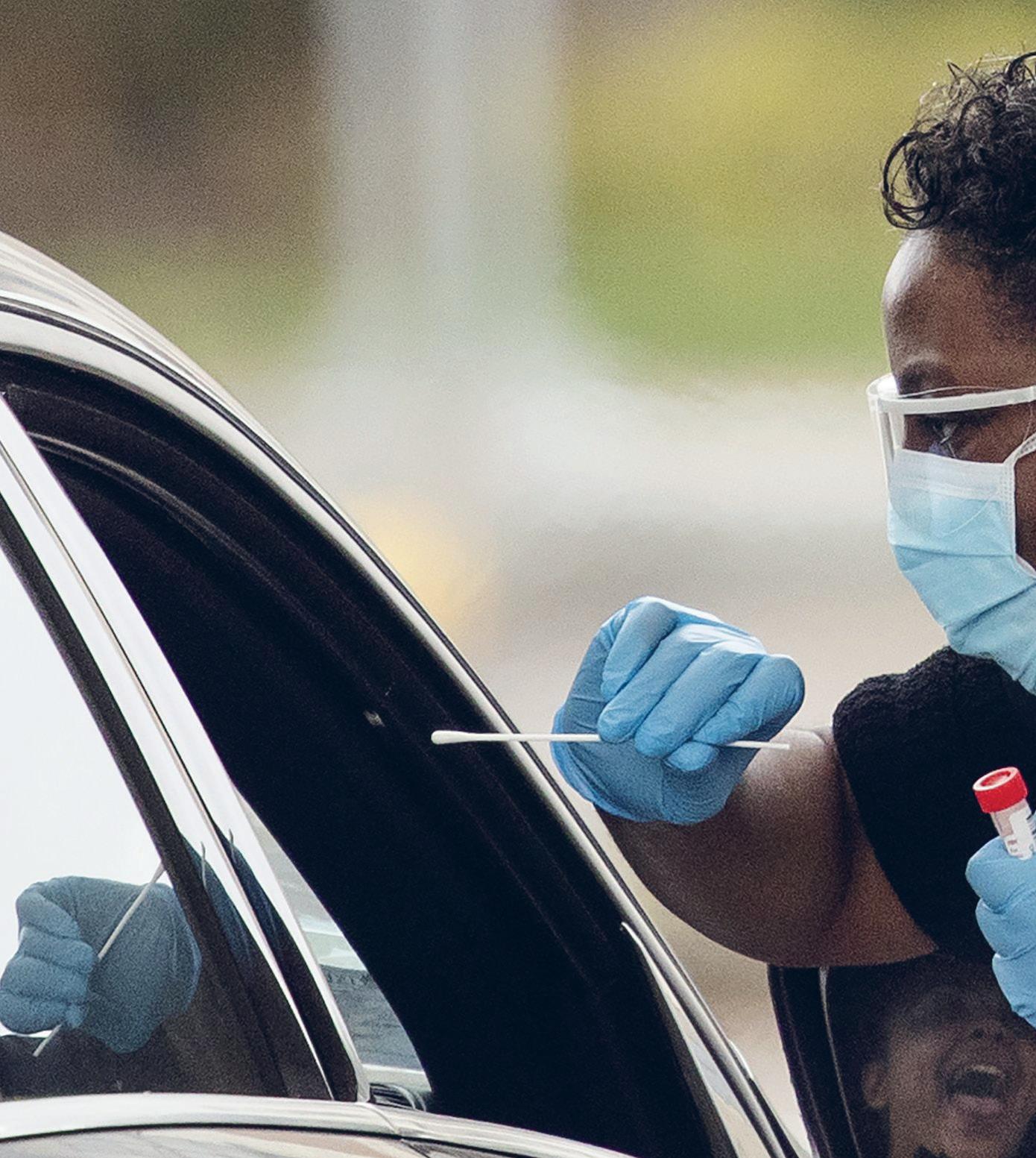
4 minute read
COVID-19 TESTING:
WHAT YOU NEED TO DO
FREE TESTING FOR CORONAVIRUS HAS BEEN EXTENDED TO INCLUDE LOCAL RETAILERS - AND HERE’S EVERYTHING YOU NEED TO KNOW TO GET YOU AND YOUR STAFF TESTED IF THEY ARE SHOWING SYMPTOMS.
The UK Government has extended Covid-19 testing to essential workers with symptoms and people who live with essential workers and have symptoms. This includes convenience retailers and their staff.
WHEN TO GET TESTED?
Testing is targeted at key workers who are self-isolating because they are symptomatic, or have household members who have symptoms.
Tested should be done in the first three days of coronavirus symptoms appearing, although testing is considered effective up until day five.
TEST RESULTS
The test will confirm if an individual who is showing symptoms of the virus actually has it. It will not confirm whether they have had it and have now recovered.
Results are communicated to individuals directly by text message. The target for sending results is by text within 48hrs.
NEGATIVE TESTS
Even after a negative result, it’s important to still apply caution. If everyone with symptoms who was tested in their household receives a negative result, the employee can return to work if they are well enough and have not had a fever for 48 hours.
ARRANGING A TEST
Testing under the UK programme in Scotland is currently conducted in drive-through sites operating at:
Glasgow Airport
Edinburgh Airport
Aberdeen Airport
University of the Highlands and Islands campus in Inverness
These facilities are run by private sector organisations on behalf of the UK Government. This guidance will be updated as additional testing capacity is deployed. A limited number of home test kits are also available.
EMPLOYER PORTAL
A new website has been established to improve the process of booking tests.
Local retailers can register and refer staff for appointments. Alternatively staff can book a test directly for themselves or members of their household. After they have entered their details on the portal, individuals will receive a text or email the same day inviting them to either book an appointment or get sent a home self-testing kit.
Those using self-referral can indicate their preference prior to registering details.
The UK programme is expected to include an option for booking a home-test to be delivered where attendance at a drive through centre is not practicable.
A call centre is available by phone, to help people with the process and deal with test result queries.

OBTAIN A LOGIN FOR THE EMPLOYER REFERRAL PORTAL
To obtain a login, employers should email portalservicedesk@dhsc.gov.uk with two email addresses that will primarily be used to load key worker contact details.
Once employer details have been verified, two login credentials will be issued for the employer referral portal.
Employers should then login at coronavirusinvite-testing.service.gov.uk/DaraTestDemand/ Login to make referrals.

SELF-REFERRAL PORTAL
Go to self-referral.test-for-coronavirus. service.gov.uk to sign up if you are a key worker and you or a member of your family is symptomatic.
Any questions from employers or key workers about accessing testing, the website, or results should be made through opshub@dhsc.gov.uk.
HOME TESTS
Home test kits are an option where staff are unable to attend a drive-through centre, subject to availability.
Staff who have completed a self-referral may have the option, depending on available capacity, to book a home-test kit.
Amazon and Royal Mail are the commercial partners being used to deliver Home Testing nationwide. Th ey do not have access to the results or any health data.
HOW HOME TESTING WORKS
After staff complete a self-referral and order a home-test kit, the test will be delivered the next day, and the worker or household member would self-administer the swab, packing it up as per the included instructions.
A Royal Mail courier will arrive the day aft er to collect it and take it to the lab. Th e aim is that results will then be received via text within 48 hours.
SGF’S VITAL 11TH HOUR INTERVENTION

Pete Cheema, SGF Chief Executive
When the announcement was made that Covid-19 testing was to be extended to essential workers, the original Scottish Government advice included retailers within a group designated as “staff directly involved in delivering other essential services”.
The advice, however, specifi cally referred only to “supermarket workers” and did not include those working in the vital convenience retailing industry in Scotland.
The wording was spotted on Saturday by the SGF and its Chief Executive Pete Cheema immediately wrote to the Scottish Government highlighting the issue.
The Scottish Government responded on Monday confi rming that local retailers and their staff are indeed classed as essential workers in Scotland and would therefore be included in the extended testing programme.










